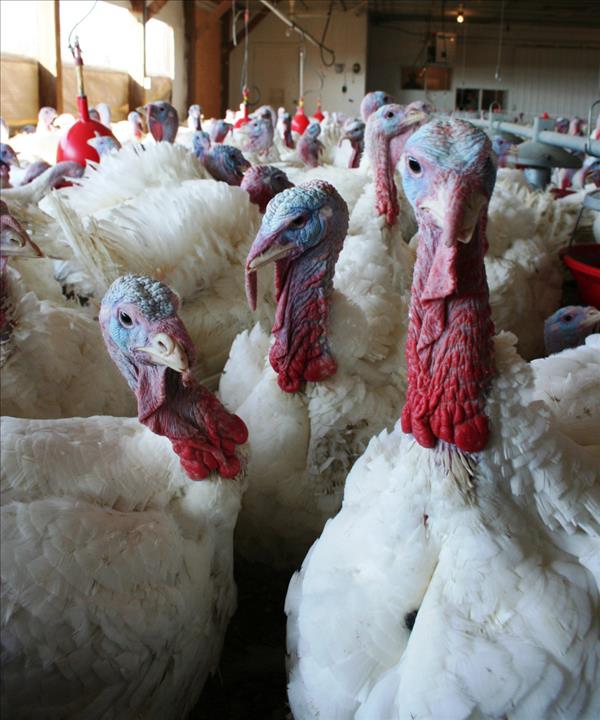The good bacteria we're studying has been keeping turkey farms healthy for years, and it has the potential to keep humans healthy as well.
November 28, 2014

TURKEY is good for more than Thanksgiving dinner: The biological machinery needed to produce a potentially life-saving antibiotic is found in turkeys.
Brigham Young University microbiologist Joel Griffitts, whose team is exploring how the turkey-born antibiotic comes to be, said, "The good bacteria we're studying has been keeping turkey farms healthy for years, and it has the potential to keep humans healthy as well."

The good bacteria, known as Strain 115, produces the MP1 antibiotic, which could target staph infections, strep throat, severe gastrointestinal diseases and roughly half of all infectious bacteria. This antibiotic, however, is not in widespread use because of its complex structure.
Griffitts, colleague Rich Robison and graduate student Philip Bennallack have been using mass spectrometry and nuclear magnetic resonance spectroscopy to identify how Strain 115 makes this antibiotic and how it manages to do so without killing itself. What they're finding is that the mechanism for producing it is surprisingly simple.
They found the engine inside of Strain 115, a compact DNA molecule also known as a plasmid, produces both the killer antibiotic and a self-protecting agent. It makes a "spare" ribosome part that, when inserted into a normal ribosome, renders it immune to the antibiotic.
"It's sort of like outfitting a car with special tires that protect against unusual road hazards," Griffitts said.
Now-retired Brigham Young professor Marcus Jensen discovered Strain 115 more than three decades ago and went on to develop three vaccines vital to the prevention of diseases in turkeys. His research moved in new directions, and the strain was set aside in 1983.
Some 30 years later, a student found the strain in a freezer, and now, with mentoring from Robison and Griffitts, the group has published its new findings in the Journal of Bacteriology.
Volume:86 Issue:49
You May Also Like

.png?width=300&auto=webp&quality=80&disable=upscale)

